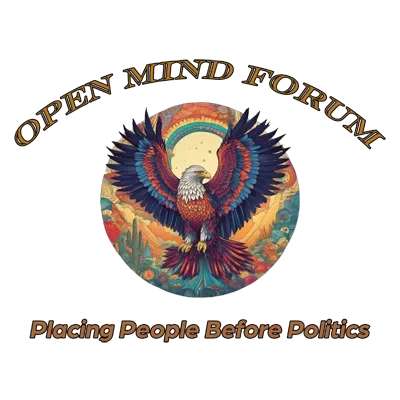Ideology & Power in Late Stage Capitalism
Introduction to Ideology & Power
Ideology & Power and the uses of ideology by the powerful is a brief discussion of Slavoj Žižek, in his examination of ideology, posits that power doesn’t just obscure the truth—it creates an alternate reality that manipulates our understanding of truth itself. Ideology, for Žižek, functions as a “fantasy” that people knowingly believe in, even when it obscures or distorts reality, because it provides a stable narrative that supports the existing power structures.

This essay will use Žižek’s theories to analyze how ideology shapes perception, sustains authority, and perpetuates “false lies”—strategically misleading narratives that blur the lines between knowledge and belief, consolidating power and weakening democratic engagement.
Drawing on Žižek’s concepts, we will explore historical and global examples to reveal how ideological narratives reinforce power dynamics, crafting a controlled version of reality that serves elite interests while keeping the populace in line. From the distortions of the Soviet regime to contemporary digital manipulation, ideology functions not just as a belief system but as an instrument of control that undermines democratic values.

Ideology as Fantasy: Ideology & Power’s Invisible Mechanism
Žižek defines ideology as a fantasy that people cling to despite knowing it is false, a concept he refers to as “cynical reason.” Unlike traditional views of ideology as mere deception, Žižek argues that individuals often understand that they are being misled but choose to believe because it feels stable or familiar. This phenomenon sustains power by obscuring the contradictions in society, allowing people to live as if the ideology were true, even when their lived experience might suggest otherwise.
In the Soviet Union, for example, citizens might have known that the state’s promises of collective prosperity and equality were hollow, but the ideological fantasy of the Communist utopia persisted because it provided a cohesive narrative that justified their sacrifices. The Soviet government used this fantasy to suppress dissent, projecting an image of strength and unity that hid systemic flaws. By convincing citizens to “act as if” the ideology were real, the state created a reality where power was concentrated and dissent was marginalized—a model Žižek describes as “reality in denial,” where ideology convinces people to ignore contradictions and accept an alternate version of the truth.
In capitalist democracies, ideology operates through subtler mechanisms but with similar effects. Take the idea of the “American Dream,” which portrays the United States as a land of boundless opportunity where anyone who works hard can succeed. Despite growing economic inequality, stagnant wages, and a shrinking middle class, this ideology persists because it offers a narrative that explains and justifies hardship as temporary and personal, rather than structural. The American Dream is a Žižekian fantasy—a story people know to be increasingly unattainable but that they continue to believe in, as rejecting it would disrupt the ideological stability upon which the system relies.
Ideology & Power in “False Lies”: Constructing Reality through Ideology
Central to Žižek’s critique of ideology is the concept of “false lies,” or narratives that embed themselves into the collective consciousness so deeply that they shape reality itself. These lies are not merely untruths but carefully constructed narratives that reinforce the dominant power structure. They become “necessary fictions” that, while false, align individual behavior with the needs of those in power, sustaining a stable social order.
A stark example is the global narrative of Western superiority, which emerged during the colonial era. Colonial powers constructed a narrative of cultural and moral superiority to justify their exploitation of other nations. This ideology, which claimed to bring “civilization” to “barbaric” societies, was widely accepted and shaped colonial policies, laws, and cultural exchanges. Though patently false, this ideological construct became so ingrained that it influenced global hierarchies for centuries, fostering an unequal world order that continues to affect international relations today. The fantasy of Western superiority, though long debunked, persists in subtle forms, demonstrating Žižek’s point that ideology can remain in place long after its original purpose has dissipated.
A modern example of “false lies” can be seen in the concept of “trickle-down economics,” which posits that wealth will eventually benefit everyone if it remains concentrated among the wealthy. Despite ample evidence that trickle-down policies widen income inequality, this narrative has been deeply embedded in economic policy. It serves as an ideological justification for tax cuts for corporations and the wealthy, which purportedly stimulate economic growth but actually concentrate wealth further. This “false lie” perpetuates the fantasy that anyone can rise in the ranks by hard work alone, concealing the structural barriers that make economic mobility increasingly difficult. By fostering belief in this narrative, powerful entities secure their wealth and avoid calls for redistributive policies.
Knowledge vs. Belief: The Erosion of Truth in a Post-Truth World
One of Žižek’s key insights is how ideology manipulates the boundary between knowledge and belief, creating a “post-truth” society in which factual accuracy becomes secondary to the ideological narrative. The acceptance of “alternative facts” or emotionally resonant narratives over evidence-based reasoning exemplifies this phenomenon, distorting public discourse and allowing those in power to maintain control through illusion.
A prominent example of this phenomenon is the climate change debate. Despite overwhelming scientific consensus, fossil fuel interests have fostered skepticism about climate science, manipulating public belief to delay regulation and protect profits. The climate change denial movement leverages ideology to blur the line between knowledge (scientific evidence) and belief (fossil fuel propaganda). Here, the fantasy Žižek describes—the notion that climate change is a “natural” cycle or an exaggerated threat—persists because it aligns with powerful economic interests. As people continue to doubt scientific evidence, the delay in action benefits corporations while stalling efforts to mitigate environmental collapse.
In international politics, Brexit illustrates how ideological narratives can override empirical evidence. The “Leave” campaign’s emphasis on British sovereignty and anti-immigrant sentiment shaped the debate, overshadowing evidence of the economic challenges that would follow departure from the EU. This ideological narrative, fueled by nationalism, was accepted by voters even when facts contradicted it. This aligns with Žižek’s concept of ideology as a fantasy that people adhere to, even as contradictions emerge, because it fulfills a desire for stability and national identity. The decision to believe in Brexit’s ideological appeal over factual evidence demonstrates the power of ideology to shape reality and decisions that have far-reaching consequences.
Media and Technology: Amplifying Ideological Narratives
In the digital age, Žižek’s analysis of ideology is especially relevant as technology amplifies the reach and potency of ideological narratives. Social media platforms, data-driven advertising, and algorithmic curation create echo chambers that reinforce beliefs, regardless of their accuracy. These technologies do not merely disseminate information but actively shape reality by reinforcing ideological perspectives that serve corporate and political interests.
The Cambridge Analytica scandal is a powerful example of how ideology and technology intersect to manipulate belief systems. By exploiting user data, political operatives crafted personalized narratives that resonated with individual biases, persuading voters to support specific candidates and policies. This targeted ideological manipulation aligns with Žižek’s view of ideology as an unconscious framework that shapes people’s choices. Rather than openly coercing voters, the manipulation exploited personal beliefs, seamlessly blending ideology with technological nfluence to sway elections.
In authoritarian states, technology-driven ideological control is even more explicit. China’s use of surveillance and censorship reinforces state ideology by controlling access to information and creating an illusion of unanimous support for the government. This system of ideological control prevents alternative narratives from emerging, allowing the government to dictate reality without overt oppression. Here, Žižek’s concept of ideology as a “fantasy structure” becomes literal, as citizens are compelled to live in a carefully curated reality that supports state power.
Conclusion: Challenging the Ideological Structure
Žižek’s critique of ideology exposes how deeply it permeates society, from shaping public beliefs to controlling political discourse. Ideology is not merely a set of ideas but a powerful structure that blurs the lines between truth and fantasy, knowledge and belief, creating a version of reality that sustains power. Through “false lies” and the manipulation of belief, ideology keeps people in a cycle of compliance, preventing transformative change by maintaining the appearance of stability.
To counter ideological manipulation, society must foster critical thinking and media literacy, challenging narratives that serve elite interests. By recognizing the constructed nature of ideological frameworks, individuals can resist the lure of stable but misleading narratives and demand greater transparency from those in power. Žižek’s work calls for a reevaluation of the fantasies that structure our reality, urging us to confront the contradictions they conceal and to reclaim truth as the foundation of a genuine democracy.
Sources Cited
- Žižek, Slavoj. The Sublime Object of Ideology. Verso, 1989.
- Althusser, Louis. “Ideology and Ideological State Apparatuses.” Lenin and Philosophy and Other Essays. Monthly Review Press, 1971.
- Debord, Guy. The Society of the Spectacle. Black & Red, 1977.
- Fisher, Mark. Capitalist Realism: Is There No Alternative? Zero Books, 2009.
- Orwell, George. 1984. Secker & Warburg, 1949.
Suggestions for Further Reading
- “The Sublime Object of Ideology” by Slavoj Žižek – Foundational to understanding Žižek’s views on ideology as fantasy.
- “Capitalist Realism” by Mark Fisher – Examines the psychological and ideological structures of late capitalism.
- “The Society of the Spectacle” by Guy Debord – Critiques the media’s role in creating a “spectacle” that distracts from systemic issues.
- “Propaganda” by Jacques Ellul – Analyzes how propaganda shapes public belief and sustains power structures.
- “Ideology and Ideological State Apparatuses” by Louis Althusser – Explores how institutions enforce ideology to reinforce power.
Disclaimer: The images and videos in this post are AI-generated creations, intended purely for illustrative and conceptual purposes. They are not real-life representations and should not be interpreted as such. Their sole purpose is to offer a visual means of exploring the topics discussed in this post.




